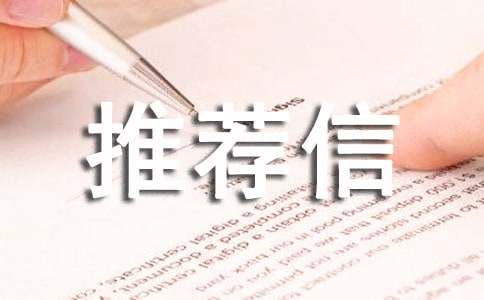英文推荐信的开头
英文推荐信的开头
在现在社会,用到推荐信的地方越来越多,通过推荐信,可以达到展示申请人才能的目的。你所见过的推荐信是什么样的呢?下面是小编为大家整理的英文推荐信的开头两篇,欢迎阅读与收藏。

[Name Street City State Zip Code]
[Phone # Fax phone # Email address]
[Date today月日年]
[Recipient’s name 收信人名姓]
[Address地址]
[Address]
Dear [Recipient’s name] or To Whom It May Concern:
[信的开头往往可以是:陈述你和被推荐人之间的关系。譬如:你是被推荐人的主管,同事,或老师。你认识被推荐人有多久了...]
[陈述被推荐人在工作、学习、为人、性格等等方面的优点。突出他(她)的技术、完成的任务、对公司或社会的.贡献。最好举例说明。]
[如果你很舍不得被推荐人离开,你应该在这里说明。用词观点要鲜明和强力,多用:excellent, superior, instrumental, creative, innovative,
efficient, dependable, articulate, meticulous, self-starter and
confident...这样的词。避免使用:nice, good, fine这样的形容词。]
[以推荐此人作为结束语,并说明如果对方需要了解被推荐人更多更详尽的情况可以和你联系。]
Sincerely,
[Sign here签名]
[Your name你的名字]
[Your title你的职称]
英文推荐信的开头篇二:英文推荐信范文
university of international business and economics
beijing 100029, p. r. china
sept. 28, 1998
dear colleagues:
this is to recommend ms. shan shan, a graduate from this
university’s department of international business management, for acceptance into your mba program.
i have known ms. shan as a resourceful and goal-oriented individual since 1990, when she attended a lecture i delivered, at which she asked perceptive and challenging questions. although she did not officially take a course with me, she often consulted me on issues arising out of her studies. i therefore have come to know her well. i feel strongly that ms. shan’s unusual talents and abilities will stand her in good stead for a quality mba education, which should serve as a major boost to her career.
while at this university, ms. shan was an outstanding student, boasting excellent performance in all subjects of her studies and demonstrating great potential. her overall gpa ranked her among the top 3 in her class of 40 students. but ms. shan was no bookworm devoted exclusively to exams. she read extensively in subjects
outside her major, particularly in business law, marketing, finance and journalism, all of which seemed to be fascinating to her. in
recognition of her intellectual strengths, the department offered, at the time of her graduation, to accept her into its graduate without the normally mandatory examinations. she, however, turned down the
offer. a highly independent woman, she already had her own agenda set.
she wanted to obtain practical management experience first and then proceed to pursue a master’s degree in business administrative in your country. she apparently made the right decision, for she has since become one of our most successful graduates in her crop of students.
ms. shan is good at communicating in both oral and written english. some of he most important undergraduate courses were taught by american professors, many of whom considered her oral english as native and her written english as standard. i am sure that she has since improved her english a lot more in her professional life.
in ms. shan, we all saw an optimistic and easy-going character. with highly unusual determination, she is not to be daunted by any difficulties. she believes that, with hard work, she can achieve anything she wants. i think her confidence in herself is well
grounded in her track record, especially when considering the fact that she entered into this university as the daughter of a most impoverished family, but graduated as a top student.
judging by what i know of her, i think ms. shan is fully qualified to pursue an mba degree in your program. i therefore recommend her with enthusiasm. and i shall greatly appreciate if you can favorably consider her application for admission and financial aid.
yours sincerely
拓展:英语开头问候语
1. How are you doing?—你好吗?
除了被人说烂了的 "How are you?" 之外,美国人见面时候最常用的打招呼方式就是:
"Hey! How are you doing?"
"How's going?" 也很常见。
2. What's up?—什么事?
"What's up?" 也是很常用的一种打招呼方式。
举个栗子
比方说Sherlock在路上看到我跟我说 "Hey! XXX"
那我通常就会答说 "Hi! Sherlock. What's up?"
这就是问对方近来怎样,有什么事吗?
通常如果没什么事人家就会说 "Not much."
不过还有一种情况也很常见,你先跟人家说 "Hey! What's up?" 那别人也不说 "Not much",反而反问一句 "What's up?" 所以 "What's up?" 已经变成有点 "Hello"的味道在里面了。
"What's up?" 也常被用来问人家有什么事?
例如有人登门拜访, 你就会说 "What's up?" (有何贵干? )
在南非的打招呼方式是 "How zit?" 这是从 "How's it?" 衍生变化而来。
所以同样是讲英文的国家,打招呼的方式也有很大的不同。
3. Could you do me a favor?—帮个忙
你能不能帮我个忙?
"Could you do me a favor?"或是"Could you give me a hand?" 算是比较正式而礼貌的讲法。有时候要请别人帮忙还不太好意思说,可以说 Could you do me a little favor?( 能不能帮我一个小忙?)
其实也许是帮大忙但也要假装客气一下,讲成小忙,先让对方点头才是。(注意一下:这里用could you会比can you来的客气一点。)
另外 "Can you help me?" 也很常见,通常比如说我们去买东西,可是店员自己在聊天,我就会说 "Can you help me?" (其实正常来说,应该是他们主动会问 "Can I help you?" 或是"May I help you?" 才对,但有时实在等不及了,就直接先问出口 "Can you help me?"
4. What are you studying?—你主修啥
其实这样的问法就是问你 "What's your major?" 但老外比较喜欢说 "What are you studying?"
如果说你遇见一个人,你也不确定他是不是学生,我们通常会问 "What do you do for living?" 你是作什么工作的? 或是简单地问 "What do you do?" 一般不会说成 "What's your job?"
5. Where are you going?—你要去哪?
通常走在路上遇到好朋友,除了打招呼之外,我都还会问 "Where are you going?"
另外老美也很喜欢用heading这个词来代替going。所以你也可以问 "Where are you heading?" 同样都是你上哪去的意思。
动词
1.[I,T] [boast (about/of sth)]
自夸,自吹自擂
2.及物动词:(不用于进行时)[written]有(值得自豪的东西)
n.
[boast (that...)][often disapproving]夸耀(的事);夸口(的话)
词形变化:形容词:boastful。
同义词:jactitationing,self-praise;gas,gasconade,blow,bluster,brag,shoot a line,swash,tout,vaunt;feature,sport。
单词分析:这些动词均含有“自夸,吹嘘”之意。
boast:普通用词,指对自己所做的事,自己的长处、财富以及家庭等的夸耀,常含言过其实的意味。
brag:非正式用词,其夸耀和吹嘘意味强于boast,到了过分夸大,有时令人讨厌的地步。
crow:多指大声吵嚷地吹嘘,夸耀自己做某事比他人做得好。
pride:与boast的意义较接近,指炫耀、夸口,自鸣得意,常与反身代词连用。
英语句子
To boast
吹法螺
To boast oneself
夸奢自大
Italy boasts of sensual beauty.
意大利吹嘘感官上的美。
To boast of a counter attack
奢言反攻
The fishing boast rested on the bay under their white sails
扬着白帆的渔船停在海湾上。
英语解释
speaking of yourself in superlatives
show off
wear or display in an ostentatious or proud manner
相似短语
boast about 吹嘘;引以自豪地拥有
boast of 吹嘘;引以自豪地拥有
boast it 自大 自夸
boast oneself of 自负 自夸
brag and boast 自吹自擂
相似单词
boast v. 1.[I,T] [boast (about/of sth)] 自夸,自吹自擂 2.[T](不用于进行时)[written]有(值得自豪的东西) n. [boast (that...)][often disapproving]夸耀(的事);夸口(的话)
boaster n. 自夸的人
boastful a. 1.【贬】(人)好自夸的;(言辞)自吹自擂的
boastfully ad. 自夸地
boastfulness n. 自负;夸大
【英文推荐信的开头】相关文章:
A开头的英文励志格言10-07
英文面试的开头技巧12-10
英文演讲开头结尾02-20
英文推荐信06-30
英文推荐信12-21
英文的推荐信10-23
经典英文推荐信10-23
英文绕口令大全A开头11-27
BC开头英文绕口令11-27


